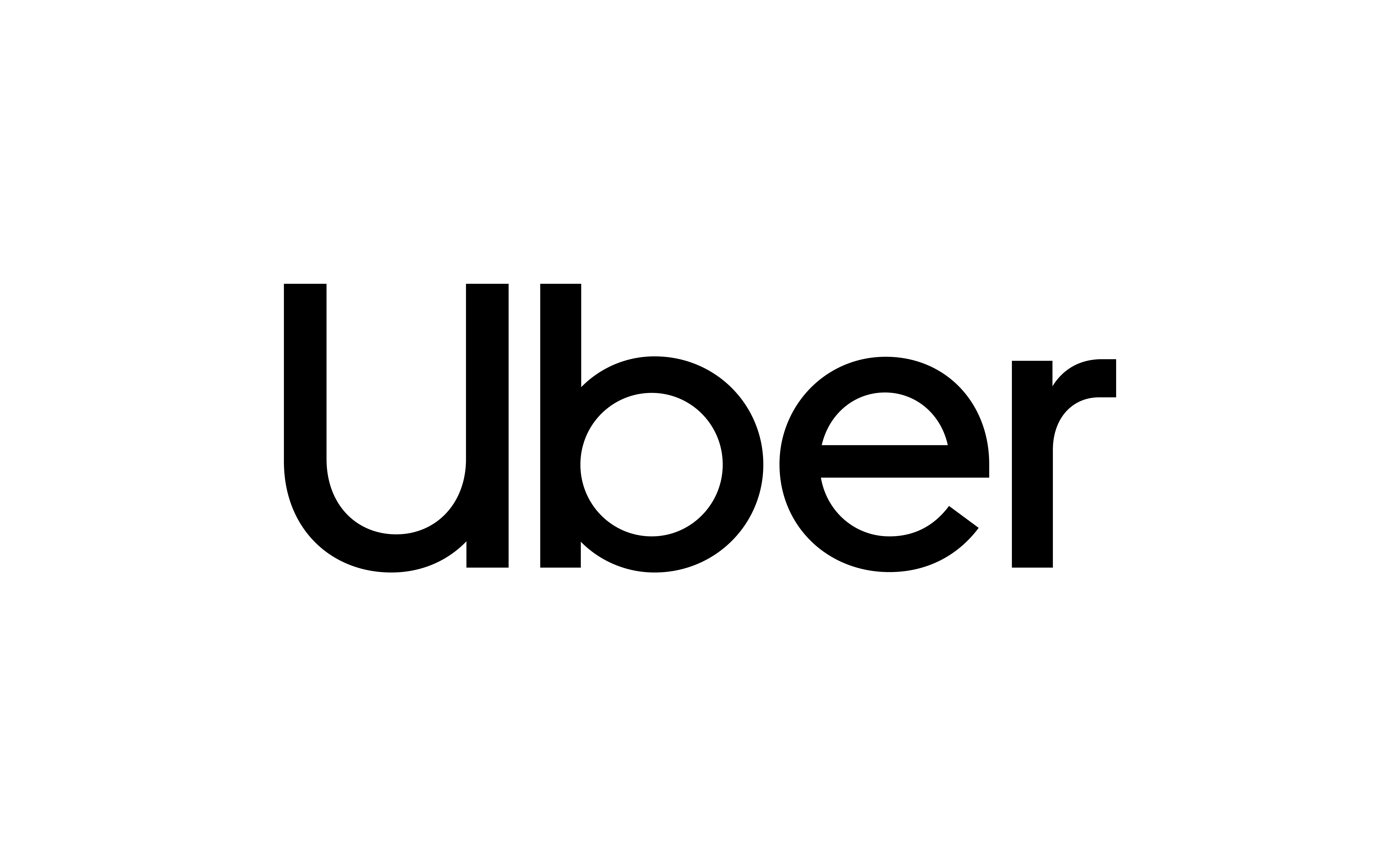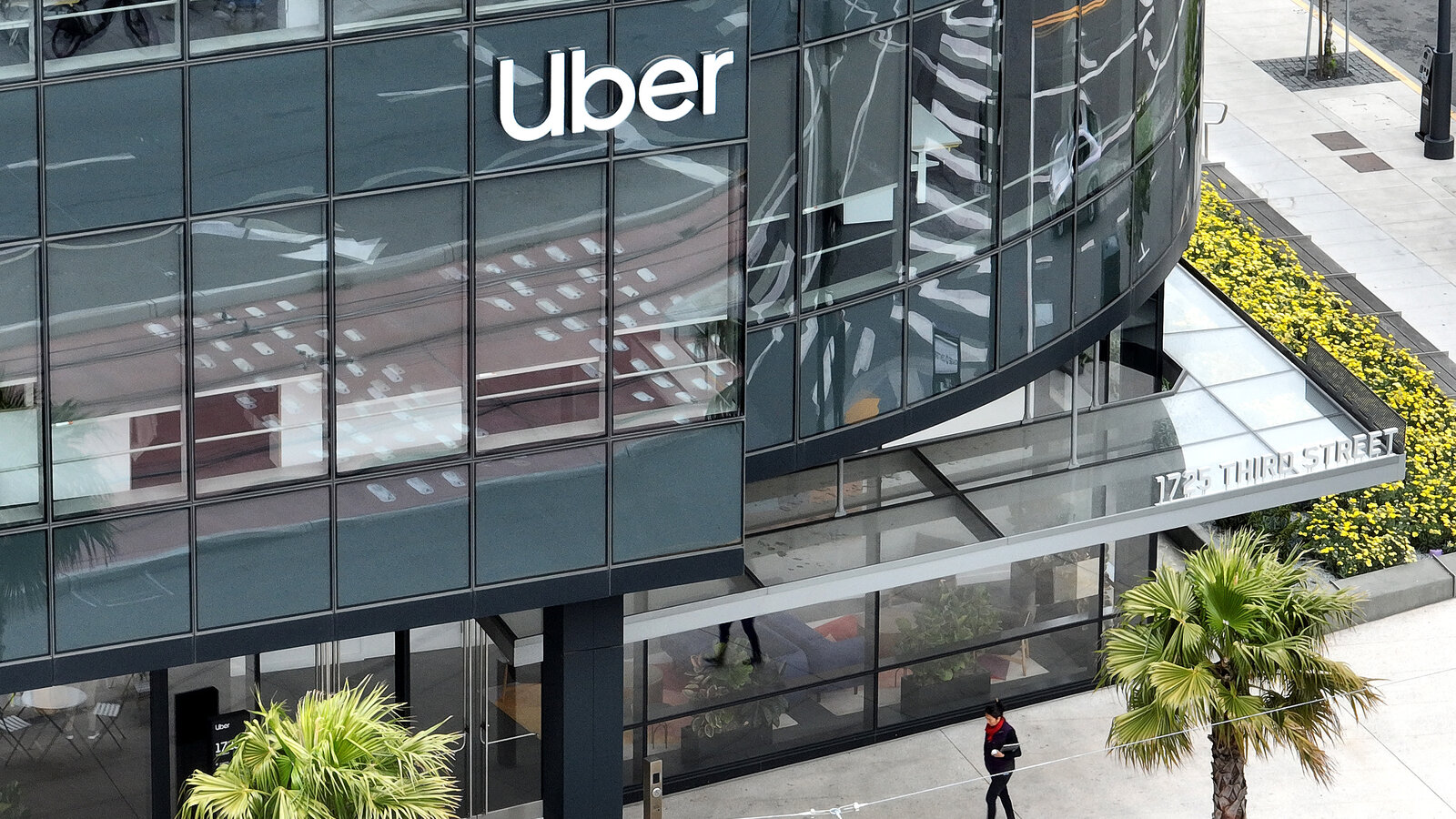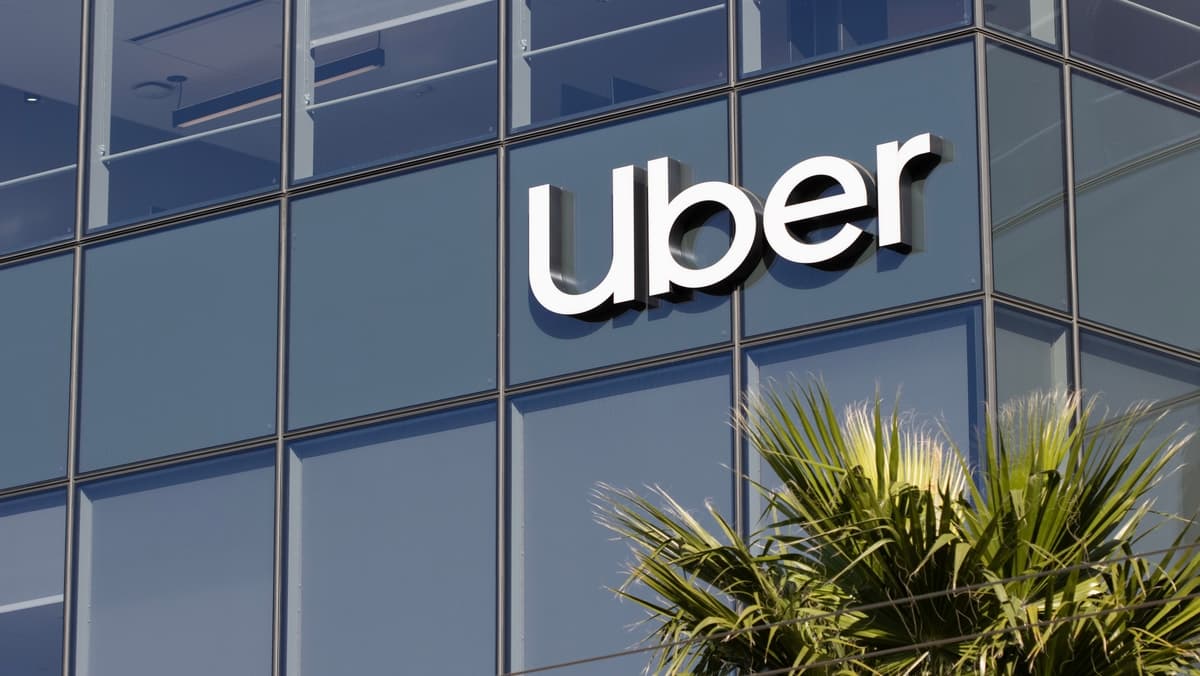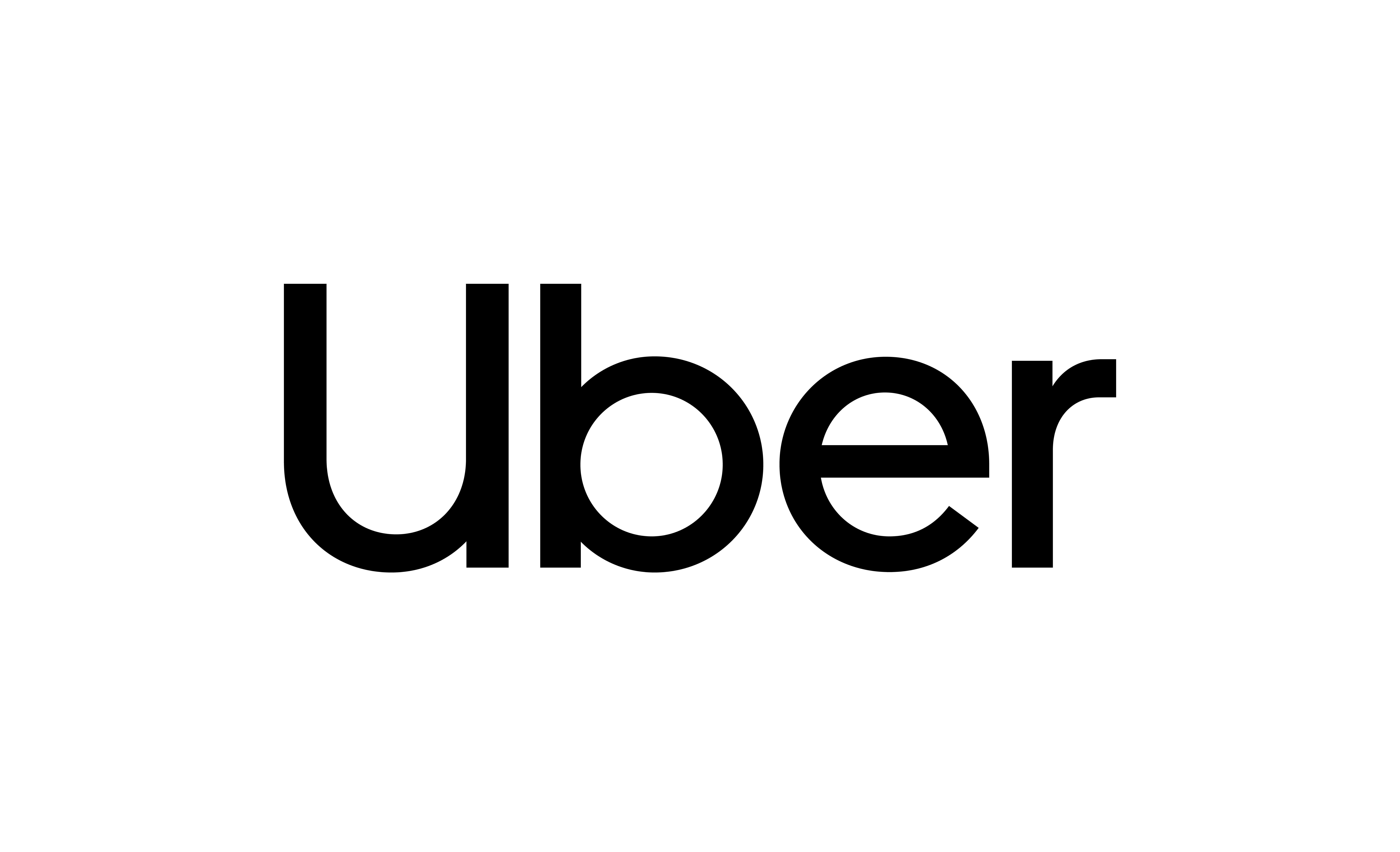Uber’s Review by Bernstein

Bernstein analysts noted a shift in sentiment around Uber (NYSE:UBER), suggesting that the stock has entered funding short territory. Despite maintaining an Outperform rating and a $95 price target, their analysis points to several factors that contribute to this perception.
Uber's stock has seen a 15% drop since its Valentine's Day Investor Update, raising concerns about risks to the investment thesis. Although the stock has gained 19% year-to-date and 78% over the past year, Bernstein cautions that stock growth isn't always linear.
Bernstein remains optimistic about Uber and sees its recent underperformance as an opportunity. However, they attribute the current sentiment and price action to a few factors, including recent multiple expansions, a less robust catalyst path, and rising concerns about robo-taxi disruption and regulatory challenges.
Despite these challenges, Bernstein sees Uber as a scaled, market-leading platform with improving profitability and strong potential for rapidly compounding free cash flow. They emphasize the benefits of owning industry leaders in sectors driven by network effects, which reinforces their long-term confidence in Uber's potential.
| Symbol | Price | %chg |
|---|---|---|
| CRM.BA | 21850 | 0.18 |
| GOTO.JK | 60 | 0 |
| 012510.KS | 89100 | 0 |
| 462870.KS | 38400 | 0 |

Uber Technologies Inc. (NYSE:UBER) Expands into Autonomous Vehicle Sector
- Uber Technologies Inc. (NYSE:UBER) is making significant strides in the autonomous vehicle (AV) sector, particularly in robotaxis, through strategic partnerships.
- The global robotaxi market is projected to reach $45.7 billion by 2030, growing at a CAGR of 91.8% from 2023 to 2030.
- Uber's market capitalization stands at approximately $201 billion, with a 52-week high of $101.99 and a low of $59.33.
Uber Technologies Inc. (NYSE:UBER) is a global leader in ride-sharing and food delivery services. The company is now making significant strides in the autonomous vehicle (AV) sector, particularly in the robotaxi market. Uber's strategic partnerships with Baidu and Lucid are key to expanding its global reach in this promising field.
On October 28, 2025, Benchmark reiterated its Hold rating for Uber, with the stock priced at approximately $95.90. As of now, the stock is trading at $96.40, reflecting a slight decrease of 0.02% or -$0.02. The stock has seen fluctuations, with a daily low of $95.75 and a high of $97.20.
Uber's broader scale and stronger price performance give it an edge over competitors like WeRide. The global robotaxi market is projected to reach $45.7 billion by 2030, growing at a CAGR of 91.8% from 2023 to 2030, as highlighted by MarketsandMarkets. This growth potential is attracting significant interest from both Uber and WeRide.
Uber's market capitalization stands at approximately $201 billion, reflecting its substantial presence in the market. The stock has experienced a 52-week high of $101.99 and a low of $59.33, indicating its volatility. Today's trading volume is 1,789,369 shares, showcasing active investor interest.

Uber Tops Q2 Expectations And Announces $20 Billion Buyback Plan
Uber Technologies (NYSE:UBER) posted stronger-than-expected second-quarter results, driven by growth in both its ride-hailing and food delivery operations, while unveiling a $20 billion share repurchase authorization.
Adjusted earnings per share came in at $0.63, narrowly beating the $0.62 estimate. Revenue rose 18% year-over-year to $12.7 billion, topping expectations of $12.47 billion.
Gross bookings climbed 17% to $46.76 billion, slightly above the $46.42 billion forecast. Despite the strong numbers, shares dipped 0.5% at the market open.
The company reported an 18% rise in trips to 3.3 billion, supported by a 15% increase in monthly active platform users. Adjusted EBITDA surged 35% to $2.1 billion, with margin expansion to 4.5% of gross bookings.
Revenue from the mobility segment increased 19% to $7.29 billion, while delivery revenue rose 25% to $4.1 billion. Freight revenue edged down 1% to $1.26 billion.
CFO Prashanth Mahendra-Rajah stated that the newly authorized $20 billion buyback reflects management’s confidence in Uber’s long-term performance.
For Q3, Uber expects gross bookings of $48.25 billion to $49.75 billion, indicating 17% to 21% YoY growth, above the $47.58 billion consensus. Adjusted EBITDA is projected between $2.19 billion and $2.29 billion, consistent with estimates.

Uber Technologies Inc. (NYSE: UBER) Maintains Strong Market Position Amidst Technological Advancements
- Morgan Stanley maintains an "Overweight" rating for Uber Technologies Inc. (NYSE: UBER), raising the price target from $95 to $115.
- Uber's partnership with Lucid and Nuro to develop driverless cars reflects optimism about the company's future in autonomous technology.
- The company's stock price shows a slight increase, with a market capitalization of approximately $189.44 billion and a trading volume of 12.57 million shares.
Uber Technologies Inc. (NYSE: UBER) is a global leader in the ride-hailing industry, offering services that connect drivers with passengers through its mobile app. The company is also expanding into food delivery and freight transportation. Uber faces competition from companies like Lyft and DoorDash in various segments. On July 20, 2025, Morgan Stanley maintained its "Overweight" rating for Uber, suggesting confidence in the company's growth potential. At that time, Uber's stock price was $90.59.
Morgan Stanley's decision to raise Uber's price target from $95 to $115, as highlighted by TheFly, indicates optimism about Uber's future performance. This optimism is supported by Uber's recent partnership with Lucid and Nuro to develop driverless cars. Despite this technological advancement, Uber's gig workers are not worried about their jobs. They believe that Uber will face challenges with the limitations and costs of autonomous technology.
Uber's stock price reflects a slight increase of 0.09%, or $0.09, reaching $90.59. The stock has fluctuated between $89.42 and $91.16 today. Over the past year, Uber's stock has seen a high of $97.72 and a low of $54.84. This volatility is common in the tech industry, where innovation and market dynamics can significantly impact stock prices.
Uber's market capitalization stands at approximately $189.44 billion, showcasing its substantial presence in the market. The company's trading volume today is 12.57 million shares, indicating active investor interest. As Uber continues to explore autonomous vehicle technology, the transition may not be immediate, ensuring ongoing opportunities for human drivers.

Needham Raises Uber Price Target to $109, Keeps Buy Rating
Needham raised its price target on Uber (NYSE:UBER) to $109 from $100, maintaining a Buy rating as recent trends in pricing and demand strengthen the case for continued growth.
The firm noted that both Uber and Lyft have seen slight quarter-over-quarter increases in ride prices, while demand remains resilient. For Uber, shorter wait times are providing a competitive edge, with the gap between Uber’s efficiency and Lyft’s pricing advantage reaching recent highs.
The price target bump reflects a higher valuation multiple, though still at a discount to where Uber currently trades. According to Needham, near-term market sentiment may hinge on developments in the autonomous vehicle space. Uber and Lyft’s upcoming partnership with May Mobility is viewed as a positive step, broadening the rideshare tech ecosystem. However, competition from Tesla’s expanding robotaxi ambitions and Waymo’s potential solo launches in Miami and Washington, DC could create headwinds for the multiple.
Despite those competitive risks, Needham remains confident in Uber’s ability to grow bookings, assuming consumer demand stays healthy.

Uber Technologies Inc. (NYSE:UBER) Maintains Strong Market Position Amid Positive Developments
- Bank of America Securities maintains a "Buy" rating for Uber Technologies Inc. (NYSE:UBER), increasing the price target from $97 to $115.
- Significant policy changes and advancements in autonomous vehicle technology are key drivers of Uber's growth.
- Uber's stock price reflects investor confidence, trading at approximately $97.52, with a market capitalization of around $203.93 billion.
Uber Technologies Inc. (NYSE:UBER) is a global leader in ride-sharing and food delivery services, known for its innovative approach to transportation, including investments in autonomous vehicle technology. Competing with other ride-sharing companies like Lyft and food delivery services such as DoorDash, Uber has recently received a "Buy" rating from Bank of America Securities, with its stock price at $97.52.
Bank of America analysts have increased Uber's price target from $97 to $115, citing several positive developments. These include favorable policy changes, advancements in autonomous vehicle technology, and a surge in bookings growth. On Tuesday afternoon, Uber's shares were trading at approximately $97, reflecting investor confidence in these growth drivers.
One significant policy change is the "No Tax on Tips" provision in President Donald Trump's spending bill, allowing gig workers, including Uber drivers, to deduct tips from taxable income without itemizing. With U.S. Uber drivers projected to earn $42 billion in 2025, and about $5.7 billion from tips, the estimated tax savings could be around $1 billion. This tax benefit is expected to boost driver earnings and indirectly support Uber's take rates.
Uber's partnerships in autonomous vehicle technology, including collaborations with Waymo, are also driving optimism. The company's ability to scale AV technology and the broader adoption of Level 4 AV tech are seen as positive indicators. Additionally, strong booking growth and the traction of Uber One suggest a solid subscriber base, further supporting Uber's growth prospects.
Uber's stock price has shown resilience, with a current price of $97.52, marking an increase of 0.84 or approximately 0.87%. The stock has fluctuated between a low of $95.11 and a high of $97.60 today, which is also its highest price over the past year. With a market capitalization of approximately $203.93 billion and a trading volume of 17.74 million shares, Uber remains a significant player in the market.

Uber Technologies Inc. (NYSE: UBER) Sees Rating Upgrade Amid Market Challenges
- Raymond James upgraded Uber Technologies Inc. (NYSE: UBER) to "Outperform" with a stock price of $83.39.
- Despite a 7.7% decline over the past month, Uber is identified as a top stock to watch by Zacks Investment Committee.
- Uber holds an average brokerage recommendation (ABR) of 1.48, indicating strong analyst confidence.
Uber Technologies Inc. (NYSE: UBER), a global leader in ride-sharing and food delivery services, received an upgrade to "Outperform" by Raymond James on June 18, 2025, with a stock price of $83.39. This upgrade, reported by Benzinga and featured on CNBC's 'Final Trades', suggests confidence in Uber's potential to outperform the market average.
Despite this positive outlook, Uber's stock has faced challenges, declining by 7.7% over the past month, while the Zacks S&P 500 composite rose by 0.6%. However, the Zacks Internet - Services industry, which includes Uber, gained 4.7% during the same period, highlighting the complexity of predicting Uber's future stock direction.
The Investment Committee at Zacks has identified Uber as a top stock to watch for the second half of the year, indicating potential growth opportunities or significant developments on the horizon. Investors are advised to closely monitor Uber's strategic moves and performance, as these could impact its stock value.
Wall Street analysts play a crucial role in shaping investor decisions. Uber holds an average brokerage recommendation (ABR) of 1.48, suggesting a position between Strong Buy and Buy. Out of 50 brokerage firms, 36 have rated Uber as a Strong Buy, and four as a Buy, reflecting strong positive sentiment among analysts.
Currently, Uber's stock trades at $83.37, experiencing a 1.64% decrease with a $1.39 drop. The stock's daily range is between $82.31 and $86.47, with a 52-week high of $93.60 and a low of $54.84. Uber's market capitalization stands at approximately $174.34 billion, with a trading volume of 19,979,992 shares today.

Uber Technologies (NYSE: UBER) Faces Competitive Pressures Amid Tesla's Robotaxi Advancements
- Morgan Stanley upgraded Uber to "Outperform" with a stock price of $83.61.
- Uber's stock experienced a decline, falling to its lowest point since May 12 at $82.93, due to concerns over Tesla's robotaxi sector advancements.
- Despite challenges, Uber maintains a strong market presence with a market capitalization of approximately $174.84 billion.
Uber Technologies (NYSE:UBER) is a leading player in the ride-hailing industry, known for its innovative approach to transportation. The company offers a platform that connects riders with drivers, providing a convenient and efficient way to travel. Uber faces competition from other ride-hailing services like Lyft and emerging technologies such as Tesla's robotaxi service.
On May 30, 2025, Morgan Stanley updated its rating for Uber to "Outperform," with the stock priced at $83.61. This rating suggests that Morgan Stanley expects Uber to perform better than the overall market. However, despite this positive outlook, Uber's stock has faced challenges due to competitive pressures.
Recently, Uber's stock price experienced a decline, falling to $82.93, its lowest point since May 12. This drop is largely due to concerns over Tesla's advancements in the robotaxi sector, which could impact Uber's market share. Tesla's CEO, Elon Musk, announced successful tests of self-driving Model Y cars, raising fears about Uber's future dominance.
The news of Tesla's impending robotaxi launch in Austin on June 12, as reported by Bloomberg, has intensified these concerns. Uber's stock fell over 4% to $84.05, dropping below its 21-day moving average. This development has reignited investor worries about the potential impact of robotaxis on Uber's market position.
Despite these challenges, Uber maintains a strong market presence with a market capitalization of approximately $174.84 billion. The stock has fluctuated between $82.52 and $84.65 during the day, reflecting the market's reaction to the competitive landscape. As the ride-hailing industry evolves, Uber continues to navigate the challenges posed by emerging technologies.







